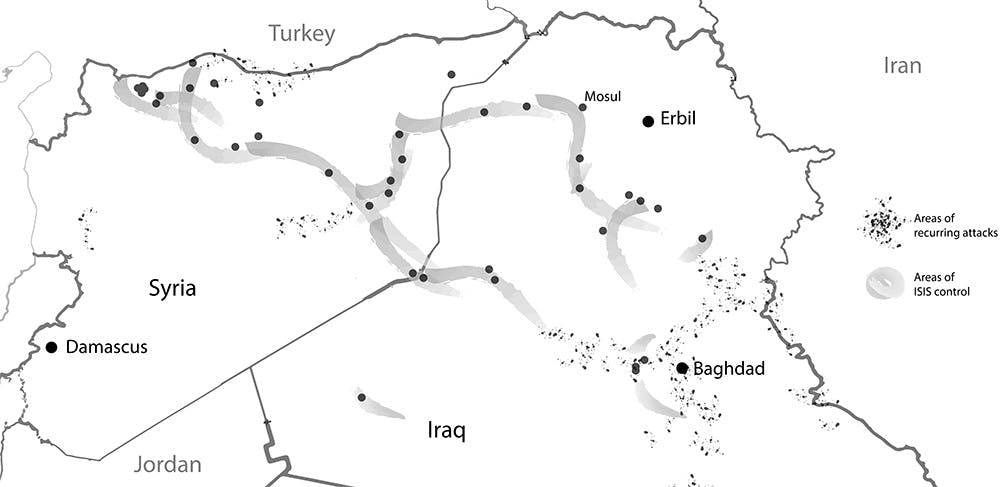Over the summer, heavy attention has been drawn to the Middle East, especially after a video of the beheading of American journalist James Foley by a radical Islamist militant group surfaced on the Internet.
Attention was drawn back to the region when the group beheaded another American journalist, Steven Sotloff, in a video released last week. But prior to these incidents, many Iraqis and Syrians have been killed or forced to run away from their homes to not face the same destiny as Foley by the Islamic State of Iraq and Syria, or ISIS.
In most instances Christians had to evacuate the villages since they either had to pay a tax to ISIS officials or convert to Islam, said Melanie Jamel, human biology senior and native of Iraq.
“They’re not allowed to take anything with them,” Jamel said. “I know people who had to leave the keys to their properties.”
Jamel, whose father is now working in the city of Erbil in the Kurdish region in northern Iraq, said sometimes the men of the village would stay behind to protect the artifacts and the churches. Some churches and historical tombs of significance to Iraqi Christians were bombed by ISIS militias.
ISIS, a group created through the amalgamation of different smaller groups in post-2003 Iraq, has been conquering towns and villages in Syria and Iraq over the summer and governing them.
The group claimed to be affiliated with al-Qaida and expanded its power between 2012 and 2014 in the context of the Syrian civil war, according to Russell E. Lucas, associate professor of Arabic Studies in the Department of Linguistics and Languages.
Lucas said the group then moved to Iraq, after mainly being based in Syria, since they were contested by al-Qaida affiliate in Syria, the Jabhat al-Nusra group.
Since then, the group has taken charge of different towns and villages in the north and north west of Iraq, some of which are Christian villages, in addition to northeastern, central Syria.
Per the request of the Iraqi government, President Barack Obama authorized “targeted airstrikes” on specific regions to force ISIS to back down in those areas, including the vicinity of Erbil. Obama and British Prime Minister James Cameron were debating the suggestion of forming an multi-national coalition to execute military action against ISIS.
Although both al-Qaida and ISIS have ideological connections, so far their goals seem to be different, Lucas said. Al-Qaida has even denounced any affiliation between the groups and ISIS.
Although al-Qaida has been a more centralized group aiming at Western targets, ISIS seems to only be interested in creating a state in the region.
“So their main objective is taking and holding territory in Syria and Iraq and ideally sure they would love to take over larger regions, but militarily they’re probably not going to be able to do that,” Lucas said.
After ISIS conquered Mosul, which held the second largest population in Iraq, Iraqi government forces and Kurdish militias are now protecting other cities there, said an Iraqi graduate student who asked to remain anonymous for safety reasons.
The student, who plans on returning back to Iraq, said he doesn’t live far away from where ISIS is concentrated, but the situation seems to be stable now.
“The American intervention was appropriate,” the student said in Arabic. “The Iraqi forces wouldn’t have been enough (to push ISIS back.)
“Nobody knows what will happen tomorrow,” he said.
Editor’s note: International affairs reporter Nolly Dakroury translated the Iraqi graduate student’s interview for this article.
Support student media!
Please consider donating to The State News and help fund the future of journalism.
Discussion
Share and discuss “ISIS activity worries Iraqi students
” on social media.







